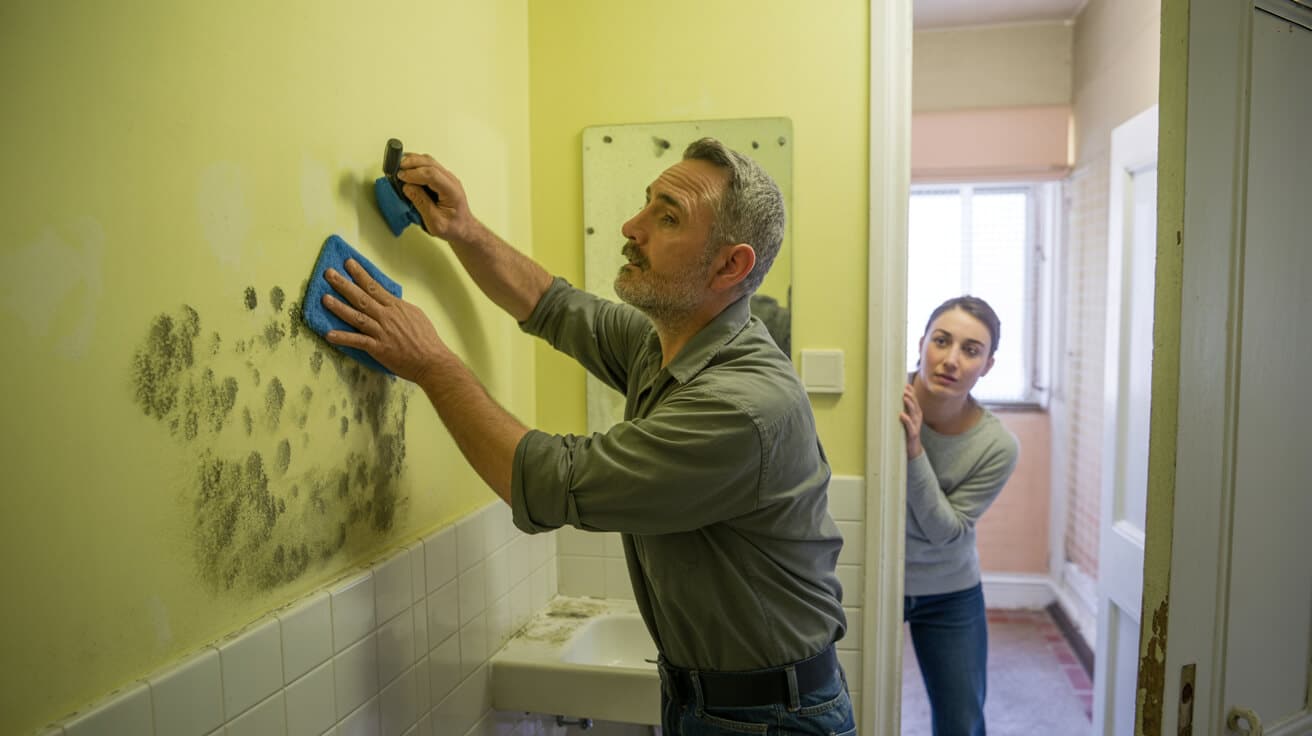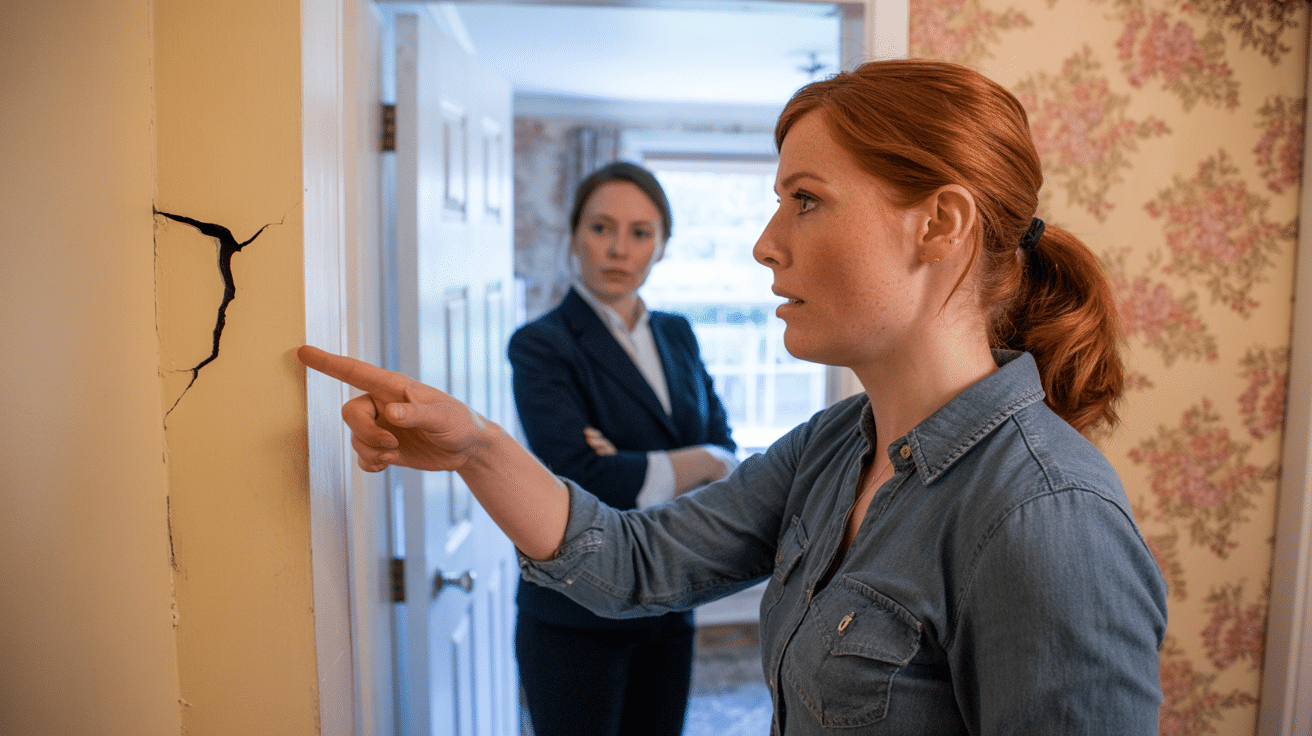 Tenant Responsibilities A Checklist For Looking After Your Rental Property
Tenant Responsibilities A Checklist For Looking After Your Rental Property

Why Do Most Tenants Lose Deposits—And What Are You Actually On The Hook For?
Every year, UK renters forfeit hundreds of pounds in deposit deductions—not because they trashed the flat, but because they overlooked simple, everyday routines. Let’s call out the biggest myth: “If I don’t break anything, I’ll get my deposit back.” That’s false. Deposits vanish over forgotten cleaning, small repairs, ignored maintenance, and missed paperwork—the boring stuff that gets ignored until the inventory clerk starts snapping photos.
Most deposit pain isn’t dramatic—it’s death by a thousand avoidable details.
Here’s what most landlords and agents look for: your habits, your reporting, your follow-through. Deposit protection is less about fixing big problems and more about daily standards and proactive reporting. The difference between a stress-free move-out and a cash-burning nightmare usually comes down to small actions carried out consistently from day one.
You can either react (and plead your case under stress)—or you can turn “tenant responsibilities” into a predictable, step-by-step system for securing your money and building a spotless reference. Let’s break down what really matters.
Landlords Notice Patterns, Not Excuses
If your goal is to walk away with both your deposit and your letting agent’s respect, forget “good enough.” Landlords judge across your whole tenancy, not just one exit clean. They’re looking for:
- Cleanliness as a habit: , not a panic the night before check-out.
- Prompt reporting of problems, with proof.:
- Care with property basics: bulbs, bins, gardens, appliances, fittings.
- Respect: for what was there on day one—including your paperwork trail.
It’s rarely the big damages that trip tenants up; it’s the ignored email, the messy oven, the unreported leak—each silently shaving down what comes back to your pocket at the end.
What “Daily Discipline” Actually Saves Your Deposit? (Not Just What The Contract Says)

It’s easy to zone out when your tenancy agreement lists “tenant-like manner,” “reasonable wear,” or “maintain a clean and tidy home.” But in practice? Landlords and adjudicators measure you by the evidence you leave behind, not what you meant to do.
Treat every week as if move-out is tomorrow. That’s how you avoid stressful sprints—and last-minute chaos eats deposits for breakfast.
Let’s get real about what habits actually move the needle:
The Habits That Make Or Break Most Deposits
- Regular “move-in ready” cleaning: – Clean the kitchen and bath like you’re checking in a new tenant. Tidy rooms, dust, sweep, empty bins—weekly or fortnightly, not just at the end.
- Keep up with light bulbs and smoke alarms: – It’s on you to swap these, unless the tenancy says otherwise.
- Handle small blockages or garden maintenance: – Remove hair from showers, keep sinks draining, mow the lawn if it’s in your contract.
- Log minor issues with dated photos: – If a drawer comes loose or a stain shows up, snap a picture, handle what you can, and file away the evidence.
- Stay proactive with the agent: – If it’s not DIY-safe or you’re not sure, ask. Log every request in writing.
What About Wear And Tear?
It’s on the landlord to expect normal use. But if you let little fixes slide until they become a problem, those “worn” bits get charged back because you didn’t raise them. Adjudicators back tenants who prove they noticed, flagged, and documented.
How Do Damp, Condensation, Or Mould Turn Into Major Deductions? (And What Actually Works?)

Damp, condensation, and mould are three of the biggest deposit killers in the UK rental world. Most tenants ignore that first misty window or faint patch on the bathroom ceiling. But if you wait, those innocent drips become major money pits for both health and wallet.
Today’s foggy window can turn into a tomorrow’s £200 deduction—if you don’t capture and report it.
The Small Actions That Block Big Deductions
- Open windows for 10+ minutes daily to ventilate.:
- Turn on extractor fans every time you cook or shower.:
- Never dry clothes inside without a vented dryer or open window.:
- Wipe down condensation, especially on windows or tiled surfaces.:
- Keep furniture at least a hand-width from external walls.:
If you spot a patch of black mould, take a timestamped photo and message your landlord or agent immediately. That log is your shield—statutory deposit schemes put the burden of proof on what steps you took and when (Shelter 2024).
Who Pays When Damp Isn’t Your Fault?
If an issue traces to a building defect or structural leak and you’ve reported it clearly with evidence, the landlord is on the hook. But if it’s ongoing condensation, cleaning and ventilation are on you—unless you reported it and got no response. No report, no protection. If the mould grows, you need to show the date you flagged it and what you did to try handling it.
Is “Tenant-Like Manner” Just Legalese—Or Is It The Key To Winning Every Dispute?

“Tenant-like manner” sounds as vague as it gets—until you need it in a dispute. Adjudicators break it down into checklist form: did the tenant clean, maintain, fix basics, report, and document? The more proactive and evidence-heavy your approach, the less likely you’ll lose out.
Landlords win on arguments, tenants win on receipts and routine.
The Tenant’s “Win List”: What Actually Convinces Adjudicators
- Routine maintenance, not just end-of-tenancy cleaning.:
- Report every issue, every time, in writing (text, email, app).:
- Document move-in, move-out, and everything in between.:
Adjudicators can’t read minds. What they want to see is a paper trail that proves you acted, not just meant well. When you’re proactive, fair wear excuses become landlord problems, not yours.
Silent Deductions: Where “Meaning Well” Loses Money
So many tenants say, “But it was only a bit of mess,” or “I didn’t know I needed to write that down.” That’s exactly what leads to silent deductions—no evidence, no debate. Treat each problem like a potential line on your deposit statement.
Which Slip-Ups Lose Real Money On Deposits? Break The “Death By Details” Loop

Everyone worries about holes in the wall or scratched floors. But the top causes of lost deposits are boring, recurring, and absolutely avoidable. Here’s what shows up time and again in TDS, Shelter, and Citizens Advice cases:
| Missed By Tenants | Typical Deduction | What Tenants Could Have Done |
|---|---|---|
| Skipped cleaning tasks | £75–£200 per room | Set reminders, spot checks, declutter |
| “Wear & tear” debates | Vague, disputed fees | Date and photo all marks, raise issues early |
| Unapproved changes | Full cost to reinstate | Ask for permission, keep emails |
| Slow reporting | Expands repair costs | Flag issues within 24 hours |
| Garden neglect | £90+ average | Quick monthly tidy, bin out, hedge trim |
| Missing documentation | Delays, lost appeal | Cloud-back up every form, photo, repair |
Every hour you spend now is worth ten at check-out.
Pro tip: Organise your photos and comms in a year-labelled Google Drive folder. When it’s time to move out, your evidence is ready, not a scramble.
Outsmart The System (Without Being The Jaded Tenant)
Stop thinking of this stuff as “landlord vs tenant.” The real win comes from being the tenant who can show care, proof, and effort—making negotiations quick, reducing hassle, and raising your odds of a glowing reference.
How Do You Actually Prepare For Check-Out—And Pass With Money And Reputation Intact?

The biggest deposit losses happen in the week before move-out. Panic sets in, tasks get rushed, and what looked “fine” starts to show up under bright inspection lights. The trick is to start prepping early, ignore denial, and think like the next person moving in.
The right habit pays you twice—once when you skip deductions, again when your next agent sees your reference.
The Step-By-Step “Zero Deduction” Prep
- Match the move-in inventory to every room—fix disparities.
- Patch and fix the obvious: screws, hooks, holes, stains.
- Deep clean kitchens, bathrooms, and behind appliances/inside white goods.
- Empty bins, defrost and clean fridges/freezers.
- Return all keys, remotes, fobs—log every set.
- Shoot well-lit, timestamped “after” photos—every room and detail.
- Back up your digital evidence—ideally in the cloud.
- Remove every one of your items unless you have written approval to leave them.
Agents compare their report to yours. When your evidence beats theirs, disputes end in your favour (Best Practice in Tenancy Deposits, TDS 2023). Don’t give them the opening to say, “There’s no proof you cleaned it.”
How Can Tenants Use Documentation To Build An Unbeatable Defence?

Documentation is your “silent advocate.” Most people remember to snap a photo when they move in—then forget the habit. The tenants who win disputes maintain ongoing, painless evidence routines.
The more transparent your storey, the faster you win back your money.
The Ultimate Tenant’s Evidence Checklist
- Comprehensive move-in photos—every flaw, window, and fitting.:
- Organise everything digitally—contracts, all comms, receipts, and photos.:
- Photo record after *each* big clean or repair (especially if you fix a mark, clog, or loose hinge).
- Written log of every approval and repair.:
- Back up utility bills, rent receipts, dispute logs, arrears comms.:
- Keep everything in order—when, what, why; no loose ends.:
When things go sideways, your calm ability to share a complete history makes you look like a pro—not a problem. Landlords and letting agents respond fast to tenants that present facts, not feelings.
Should You Fix It Yourself Or Call In The Pros? (Protecting Your Money Is The Priority)

Some tasks feel simple until the invoice hits. UK law is clear: certain repairs are always for the landlord, some are “tenant basics” (like bulbs, blocked sinks, garden duties), and many sit in the “grey zone” where bad DIY gets you into hot water.
The right call at the right time is worth more than a hasty patch—expenses and good will both add up.
When Is It Cheaper And Safer To Let The Experts Handle It?
- End-of-tenancy deep cleans: A professional invoice usually beats any amateur outcome—agents see the difference right away.
- Repairs involving plumbing, electrics, damp, or safety: If you break compliance, you pay for the fix and the risk.
- Disputes:
- If you’re fighting for your deposit, a pro’s report or invoice creates ironclad evidence.
- Court or mediation? Only credible documentation and professional records carry weight.
A trustworthy team isn’t just about “getting it done,” it’s about turning a stressful exit into an efficient, dispute-free transition.
All Services 4U supports tenants and landlords with fast, compliant, documented works—transparent pricing, straight talk, and a 95% return rate for end-of-tenancy cleans and repairs (Client Audit 2024). In a sector where every minute of lost time or missed evidence can cost you, bringing in experts is an investment in relief—not just repairs.
How Can You Lock In Peace Of Mind—And Achieve The “Ideal Tenant” Standard?
You can’t control everything—but you have real power over the decisions that turn tenant obligations into deposit security and a reputation that travels with you. It’s about acting now, not apologising later.
Every act of maintenance, every step with evidence, is money and stress you save at check-out (and with your next landlord).
If you treat your tenant responsibilities as leverage, not punishment, you shift from “risk of deduction” to “guaranteed good outcome.” In a world where property managers and landlords talk, your record is your passport to better homes, easier references, and free cash flow at move-out.
All Services 4U is your partner for every step—compliant repairs, deep cleans, documentation help, and tenant support that homeowners and agents actually trust. Book your deposit-ready service, avoid last-minute drama, and end your tenancy stronger than you started—trusted by landlords and tenants across the UK, at allservices4u.co.uk.
Don’t gamble with your deposit or your reputation—put yourself on the winning side of every move.
Frequently Asked Questions
How do landlords and tenants in the UK divide responsibility for repairs and ongoing maintenance?
Your rental agreement sets the stage, but UK law draws the real boundaries for who does what when it comes to putting things right in a property. Landlords are strictly responsible for major repairs: structural elements, fixed wiring, plumbing, gas appliances, and any systems essential to health and safety. If a pipe bursts or a socket sparks, the fix isn’t just best practice—it’s a statutory obligation. Tenants, meanwhile, are expected to handle everyday upkeep: cleaning, lightbulb swaps, garden tidying where it’s agreed, and notifying the landlord promptly if anything goes wrong.
Some agreements extend tenant roles to window cleaning or routine garden care, but legal standards trump contracts: landlords can’t delegate structural or legal safety repairs, no matter what’s written. In a nutshell, if it impacts the bones or vital arteries of the property, that’s squarely the landlord’s job.
Where do misunderstandings most often happen?
- Boundary confusion: Many tenants assume anything small (like a blocked sink) is solely their issue, but if a problem arises from faulty installation, age, or poor property condition, the landlord must resolve it.
- Changing the property: If you’re considering drilling, painting, or putting up shelves, always request written permission; the boundary between improvement and “damage” sits in your contract.
- Shared spaces: In multi-occupancy homes, communal areas (stairs, hallways, shared bathrooms) remain the landlord’s domain for major repairs, but tenants must keep them clean and hazard-free.
Every repair responsibility should be listed—verbally agreed extras almost always fall apart under pressure.
What official codes reinforce these boundaries?
- Landlord and Tenant Act 1985, Section 11: Frames all non-negotiable duties for structural repairs, heat, sanitation, and water.
- HHSRS and Housing Act 2004: Obligates landlords to promptly address serious hazards (like mould or faulty wiring).
- The Homes (Fitness for Human Habitation) Act 2018: Reinforces the baseline: if a place isn’t safe or healthy, it’s the landlord’s legal move.
- Local authorities: Step in when legal duties lapse, holding landlords to minimum standards.
How does clear communication prevent disputes?
- Log every repair request in writing—texts, emails, and dated photos create a defensible chain.
- If a landlord adds extra upkeep to your contract, get specifics in black and white before signing. Reasonable, explicit tasks (like regular hedge trimming) stand, but vague, catch-all maintenance clauses don’t.
If managing repairs feels like walking an invisible line, remember: well-maintained records and a clear paper trail keep misunderstandings from ever turning toxic.
What regular property maintenance actions most effectively help tenants keep their full deposit?
A well-maintained property is your strongest argument when it comes to deposit returns. Tenants who make basic cleaning and issue-spotting a routine sidestep the costly surprises that end up branded as “neglect.” It’s about transforming weekly chores into a system—and proving it with evidence.
For top results, combine a habit-forming schedule with documented proof of every task that connects to landlord expectations.
Essential maintenance actions for tenants:
| Task | Why It Matters | How Often |
|---|---|---|
| Wipe surfaces, vacuum, mop | Prevents stains and marks, hygiene | Weekly |
| Check for drips or leaks | Stops water damage and costly repairs | Monthly |
| Clean bathroom/kitchen vents and tiles | Prevents mould and limescale buildup | Biweekly |
| Replace accessible bulbs, batteries | Avoids agent deductions, ensures safety | As needed |
| Test smoke and CO2 alarms | Legal safety, signals compliance | Monthly |
| Garden/lawn care (if stated in agreement) | Contract compliance | Seasonally/Monthly |
| Log faults and maintenance with photos | Defends deposit, proactivity to agent | Start/end + issues |
| Deep clean carpets/windows before move-out | Removes ‘professional cleaning’ arguments | End of tenancy |
How can tenants turn routines into deposit “insurance”?
- Set digital reminders for monthly/weekly actions, and photograph tasks when done (not just after a mishap).
- Reference your check-in inventory as a checklist; anything marked “good” at move-in is your standard to maintain.
- Use shared folders or maintenance apps to store dated images, receipts, and communications—easy to reference if a claim arises.
One year’s worth of small, regular habits sidestep hundreds of pounds in last-minute professional clean charges.
Why do agents and landlords value routine logs?
- Dispute arbitration bodies heavily favour tenants who show a consistent trail of upkeep.
- Proactive logs show you’re fulfilling “tenant-like manner” obligations—a legal requirement in nearly all UK tenancies.
- When issues arise, the speed and proof of reporting (especially before move-out) win the most battles.
If you want to secure your deposit, routine evidence is your superpower. Letting agents respect preparation—and smart tenants handle checklists just like seasoned property managers.
Which neglected problems hit tenants hardest at end-of-tenancy, and how can they be intercepted early?
Rental headaches don’t usually announce themselves with disaster. Instead, costly deductions creep in from subtle neglect and assumed harmlessness. The biggest deposit killers lurk in the daily details: unattended drips, “temporary” stains, and that patch of condensation left until the final walkthrough.
Knowing which silent issues usually trip tenants up lets you be proactive instead of reactive.
Top “quiet costs” liable to erode your deposit:
- Ignored condensation: Small water droplets today can mean expensive mould remediation later. Wipe windows and corners regularly, and always ventilate after showers.
- Small leaks left unattended: dripping taps, slow seeping under sinks—it’s the landlord’s job to fix, but if the problem grows through neglect or late reporting, liability shifts quickly.
- Missed cleaning routines: Forgotten oven trays or stained carpets make up over a third of carpet and kitchen-related charges in the UK (Tenancy Deposit Scheme, 2023).
- Unlogged damage to fittings: From loose handles to cracked tiles, unreported wear compounds into bigger, chargeable problems.
- DIY gone wrong: Repairs attempted without skill or permission risk forfeiting deposit—not to mention potential safety issues.
How do you stay one step ahead?
- Keep a monthly log—photos and date stamps—of untouched trouble spots (edges of showers, under sinks, around windows).
- Report even “minor” faults the day you spot them. Most claims hinge not on the existence of a problem, but on whether you flagged it fast enough.
- For shared spaces, agree on scheduled inspections or cleaning splits, with each party held responsible for a checklist.
In end-of-tenancy reviews, no evidence often equals your fault. Consistency beats any elaborate defence after the fact.
Pro tips for minimising claims:
- Attend end-of-tenancy inspections, and bring your maintenance log for comparison.
- Anticipate known agent “hotspots” (extractor fans, window seals, bathroom grouting) by deep cleaning and photographing before keys are returned.
- If uncertain, get professional documentation from a maintenance company—third-party evidence changes the odds in your favour.
Smart tenants act like their deposit is a prize: daily habits and early action are how you win.
What records and communications prove most effective in deposit disputes or maintenance disagreements?
In property disputes, paperwork outweighs persuasion every single time. Deposit returns hinge more on what you can show than what you remember. Creating a “maintenance ledger” with bulletproof detail at move-in pays off for months down the line.
Missing or delayed evidence is the silent pitfall—ensure every action or issue is reflected in your file.
Building an “unbeatable” tenant record:
- Digital move-in survey: Photograph all rooms, surfaces, white goods, metres, and issues (no matter how minor). Save originals with timestamps.
- Routine maintenance log: Each cleaning, fix, or reported fault should be noted—date, brief description, photo if possible.
- Official correspondence: Channel all requests, approvals, and feedback through email or landlord portals (never just by phone). Save every reply.
- Third-party service evidence: Receipts from companies like All Services 4U prove both task completion and professional quality.
No judge or dispute body ignores a fact-packed maintenance ledger—the more meticulous, the more powerful.
What difference does documentation make?
- Tenants producing time-stamped photos and logs see a full deposit return rate up to 5× higher than those relying on memory (TDS Annual Review).
- If a repair was landlord’s duty and you requested it, attach that written request to any dispute defence.
- For shared spaces, keep a log signed by flatmates to prevent group liability arguments.
Organisation moves faster than memory alone. Cloud folders, apps, and even a notebook—anything works so long as you can produce records instantly if a claim lands in your inbox.
When should tenants bring in professional services like All Services 4U, and how do they provide concrete value?
Calling in pros isn’t just for technical repairs—it’s a strategic move that closes gaps in both compliance and documentation. When a situation requires qualified proof, compliance standards, or handling that exceeds a DIY comfort zone, a certified provider saves money, time, and hassle.
Strategic scenarios for bringing in professionals:
- End-of-tenancy cleaning or specialist repairs: Invoice-backed evidence defends against vague agent claims.
- Complex, regulated, or dangerous repairs: Gas, electrical, or water system issues that require legal qualifications simply can’t be DIY’d safely or legally.
- Documenting pre-existing issues: Situations where you need an independent, signed report to show that a problem was inherited, not created.
- Multiple trades on one job: When a solution needs plumbing, electrical, and carpentry all at once, which avoids juggling multiple handymen—or scheduling headaches.
- Emergency containment: Leaks, loss of power, flooding—call-outs logged with official timestamps speed up insurance claims and defend against landlord escalation.
Professional service is less about passing the buck and more about taking charge the right way—documentation and specialist know-how build trust on both sides of the rental.
Savings that pay for themselves:
- A certified, all-in-one fix eliminates the risk of accidental code violations or failed safety checks.
- Pro documentation drastically boosts dispute resolution and deposit defendability, especially against “insufficient cleaning” or “damage not our fault” arguments.
- Many insurance and arbitration panels consider professional reports and logs the gold standard—the investment is repaid with peace of mind and a stronger negotiating position.
Smart tenants use outside help not just as a fallback, but as an upgrade to their own protection.
What are the best escalation practices when self-help or routine maintenance no longer suffice—or when safety is at risk?
No tenant expects—or should be asked—to handle legal, dangerous, or structural issues alone. Some problems demand rapid, systematic escalation to landlords, authorities, or certified experts. Knowing when to move from self-help to action can protect your health, wealth, and legal standing.
Signs to escalate immediately:
- Any threat to safety: Smells of gas, visible electrical damage, flooding, or carbon monoxide alarm triggers.
- Risk to structure: Cracks, leaks compromising ceilings or foundations, or evidence of subsidence.
- Landlord inactivity: If written requests for legal repairs go unacknowledged within the statutory timescale (24 hours for emergencies), escalate to your council’s housing or environmental health team.
- Statutory compliance lapses: No current gas certificate, missing smoke alarms, or severely cold or damp conditions.
Escalation demands a cool head—document the issue, action steps, and every communication for a defence that can’t be ignored.
Effective escalation tactics:
- Make the initial report detailed (who/what/when/where), supported by clear photos or videos.
- For urgent issues, supplement written contact with a call, but circle back with an email for proof.
- If forced to organise repairs (after following “right to repair” procedure), inform the landlord in writing in advance, keep receipts, and provide a full evidence trail.
- For issues involving other tenants or common spaces, clarify and document each party’s actions to avoid collective blame.
Landlords appreciate tenants who act early, stay within their remit, and provide documentation. In turn, escalation—handled with clarity and composure—often shortens disputes and strengthens credibility with agents, councils, and trades.
If securing your deposit and protecting your peace of mind matter, make every maintenance move count. Build the habits and logs that matter, and partner with professionals like All Services 4U when situations call for expertise, speed, and rock-solid compliance. Your property journey deserves nothing less.



